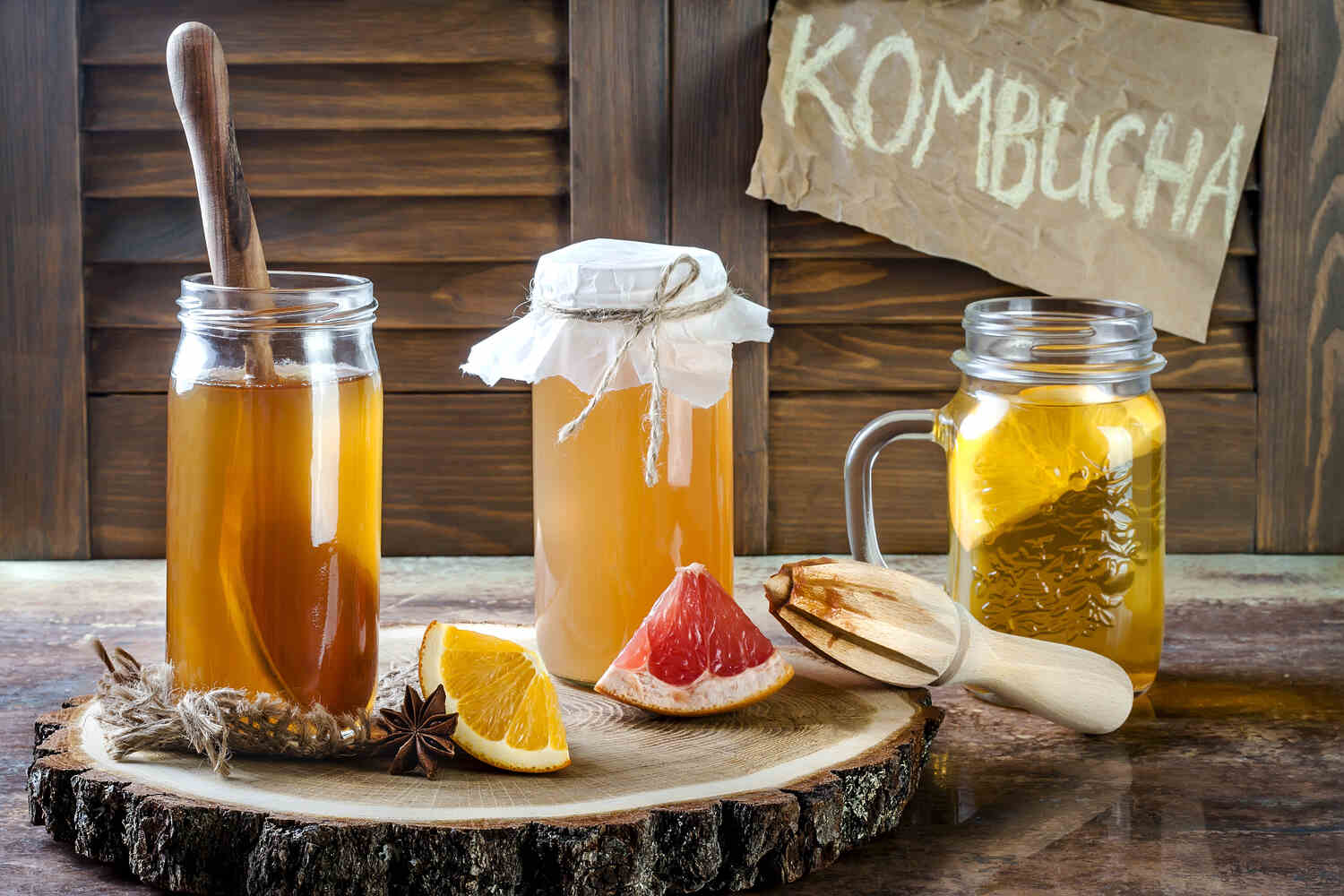
Let us discover the ancient elixir taking the beverage world by storm — Kombucha! This effervescent, fermented tea has captivated taste buds with its unique combination of sweetness and sourness. As Kombucha gains popularity among health-conscious adults because of its antioxidant and antimicrobial properties, questions arise: Is kombucha safe for kids?
On one hand, Kombucha supports gut health, potentially enhancing a child’s immune system and digestion. Its naturally occurring acids may also aid nutrient absorption. However, caution is crucial, as some commercial varieties and those made at home may contain elevated amounts of alcohol from fermentation. This article explores whether kombucha is safe for kids, delving into potential benefits and concerns.
In This Article
- What is Kombucha?
- Is Kombucha Safe For Kids?
- Nutritional Value of Kombucha
- What Are The Benefits of Kombucha?
- Are There Any Side Effects of Kombucha?
- Precautions to Take While Introducing Kombucha to Kids
- FAQ’s
What is Kombucha?
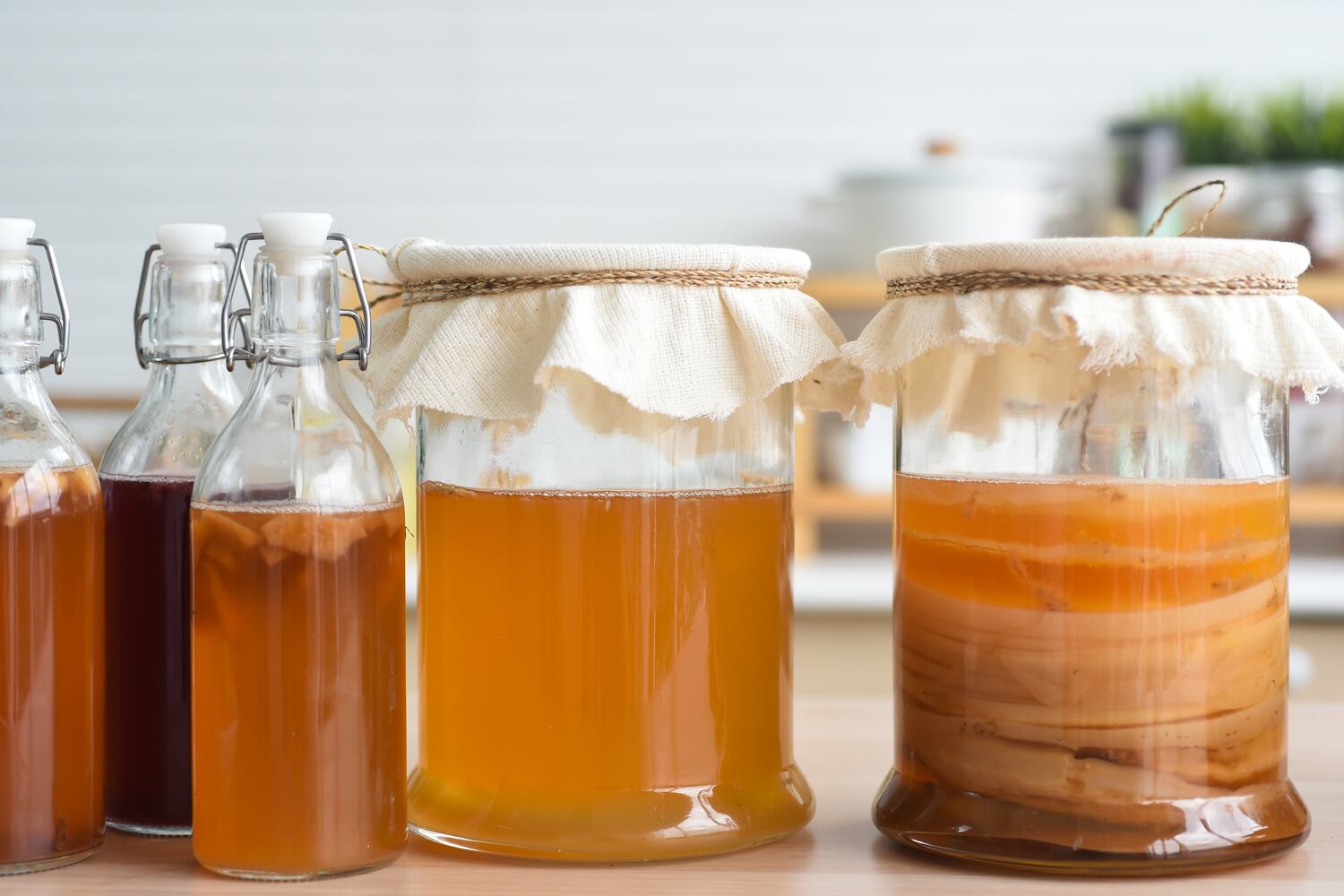
Kombucha is a fermented tea that combines sweetened tea with a symbiotic culture of bacteria and Yeast (SCOBY). Scientifically, fermentation involves converting the tea’s sugars into organic acids, carbon dioxide, and small amounts of alcohol (1a).
The yeast consumes the sugars during fermentation, producing alcohol and carbon dioxide. The bacteria then convert the alcohol into organic acids like acetic, gluconic, and lactic acids, giving kombucha its tangy flavor profile. These organic acids also act as a natural preservative, inhibiting the growth of harmful bacteria.
Is Kombucha Safe For Kids?
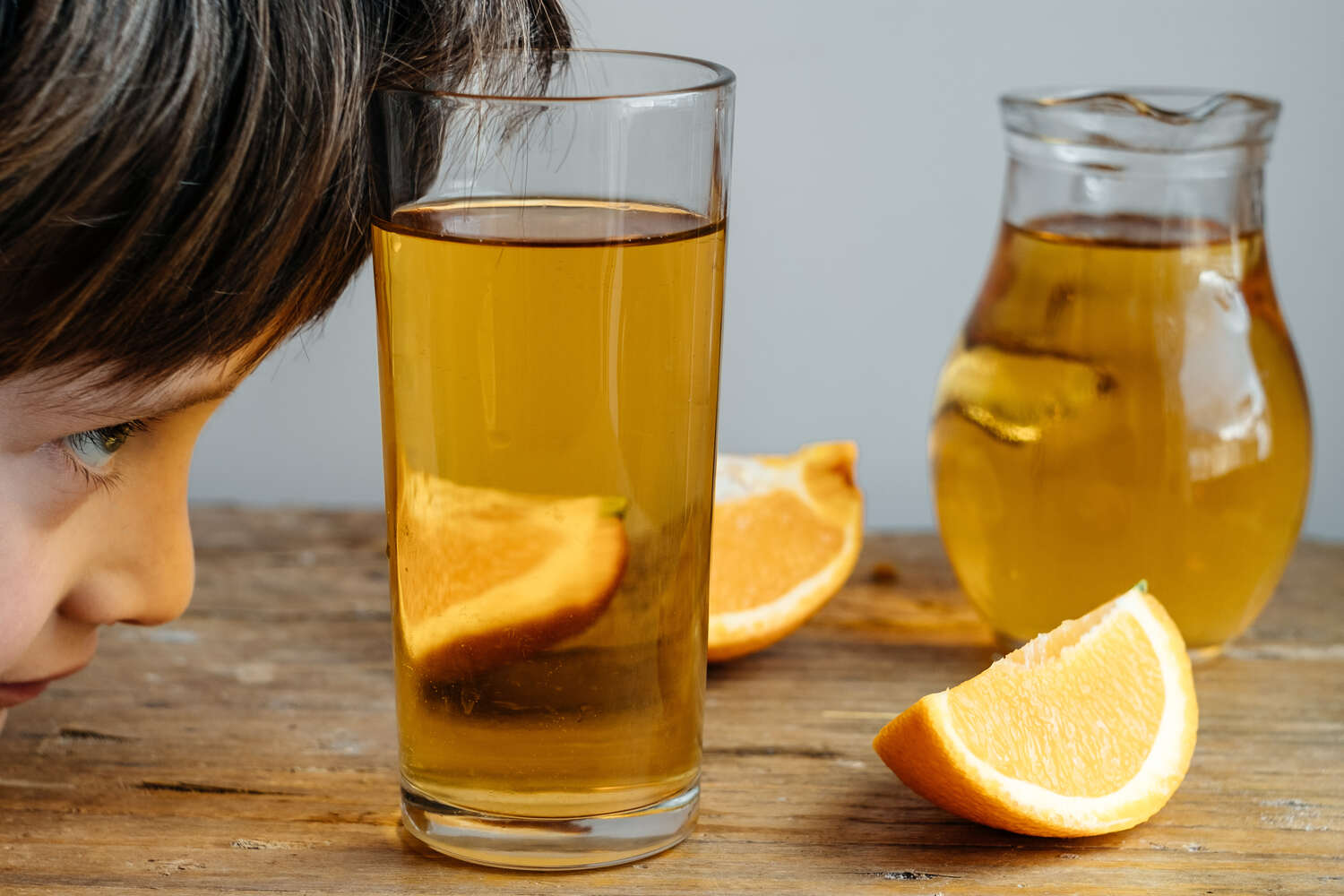
Commercially manufactured kombucha typically harbors minimal alcohol content, usually falling beneath the threshold of 0.5% ABV (alcohol by volume), rendering it non-intoxicating and generally deemed safe for consumption by the majority, including kids, when taken judiciously (2a).
In homemade kombucha or when it’s in its raw, unpasteurized state, the active microbes have the potential to sustain fermentation, posing a risk to the product. This fermentation process can occur during production or due to mishandling by consumers, especially when the product is left unrefrigerated. Kombucha of this nature may contain higher alcohol levels than the specified food safety standard of 0.5% – 1% alcohol by volume, making it unsafe for kids.
Therefore, avoid serving kombucha in its raw, unpasteurized, or homemade state. Instead, opt for commercially-produced, pasteurized kombucha, which is deemed safe for kids aged four years and above.
Nutritional Value of Kombucha
The nutritional composition of kombucha per 1 cup (200ml) serving is as follows-
| Nutrients | Value |
| Energy | 22 Kcal |
| Carbohydrates | 5.56g |
| Total Sugar | 4.44g |
| Protein | 0g |
| Fat | 0g |
In addition to its macronutrient profile, kombucha tea is rich in various B vitamins, including – thiamine, B6, B12, riboflavin, niacin and folate. Furthermore, it contains vitamin C and essential minerals such as iron, manganese, zinc, copper, and nickel (3a).
What Are the Benefits of Kombucha?
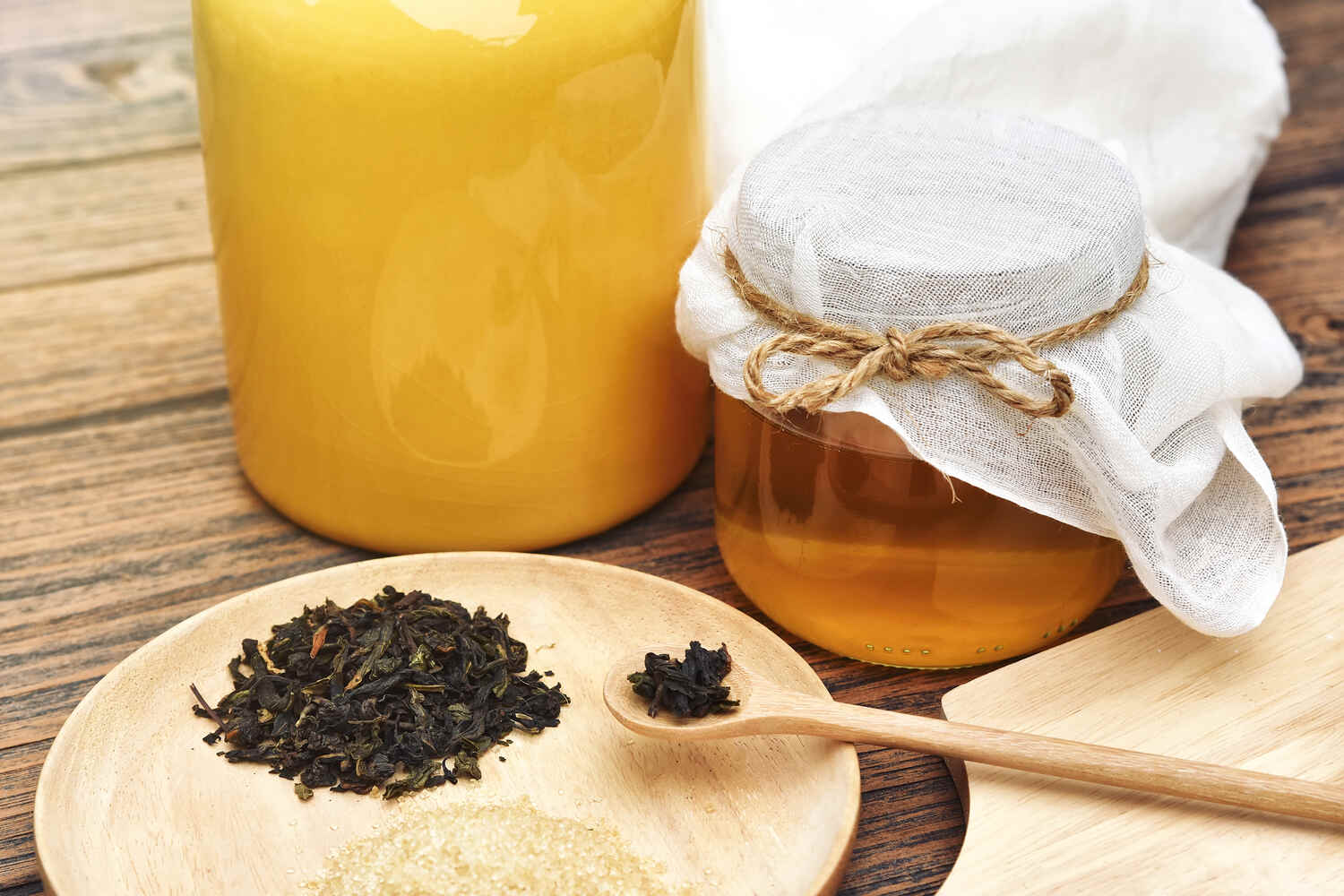
The advantageous impacts of kombucha are attributed to the existence of probiotic microorganisms (including acetic and lactic bacteria), antibiotics, amino acids, polyphenols originating from tea, sugars, organic acids, ethanol, water-soluble vitamins, and a diverse range of micronutrients generated throughout fermentation (1b). Some of the benefits of kombucha are-
1. Enhanced Immune Function
Probiotics, being live and active microorganisms, play a crucial role in improving the balance of beneficial bacteria within the gut. They aid digestion, boost the immune system, and may even lower the risk of certain illnesses (2b). These benefits make kombucha safe for kids, but in moderation.
2. Improved Gut Health
Scientific studies suggest that kombucha contains probiotics, such as lactobacillus and bifidobacterium strains, which can help balance the gut microbiota and promote digestive health. These probiotics aid digestion and absorption of nutrients while supporting immune function (2c).
3. Antioxidant Properties
Kombucha is rich in antioxidants, notably polyphenols from tea leaves. These antioxidants neutralize harmful free radicals in the body, potentially reducing oxidative stress and lowering the risk of chronic diseases (3b).
4. Potential Weight Management
Some animal studies suggest kombucha may have anti-obesity effects by modulating metabolism, reducing fat accumulation, and promoting satiety (2d).
Are There Any Side Effects of Kombucha?

While Kombucha is safe for kids, it is essential to be aware of the possible risks associated with its consumption-
1. Acidic Nature
Kombucha is acidic due to its fermentation process, which can potentially exacerbate symptoms of acid reflux or gastrointestinal issues in some kids.
2. Alcohol Content
Although commercially produced kombucha typically contains low levels of alcohol (usually below 0.5% ABV), homemade varieties or those with extended fermentation may have higher alcohol levels, posing a risk of intoxication for kids.
3. Contamination Risk
The fermentation process of kombucha involves the growth of bacteria and yeast, which can lead to contamination if the brewer follows unhygienic practices during brewing. Contaminated kombucha may harbor harmful bacteria or mold, posing a risk of foodborne illness.
4. Drug Interaction
Kombucha’s diverse bioactive compounds, including organic acids and polyphenols, could impede certain medications, impeding their absorption or efficacy.
Precautions to Take While Introducing Kombucha to Kids
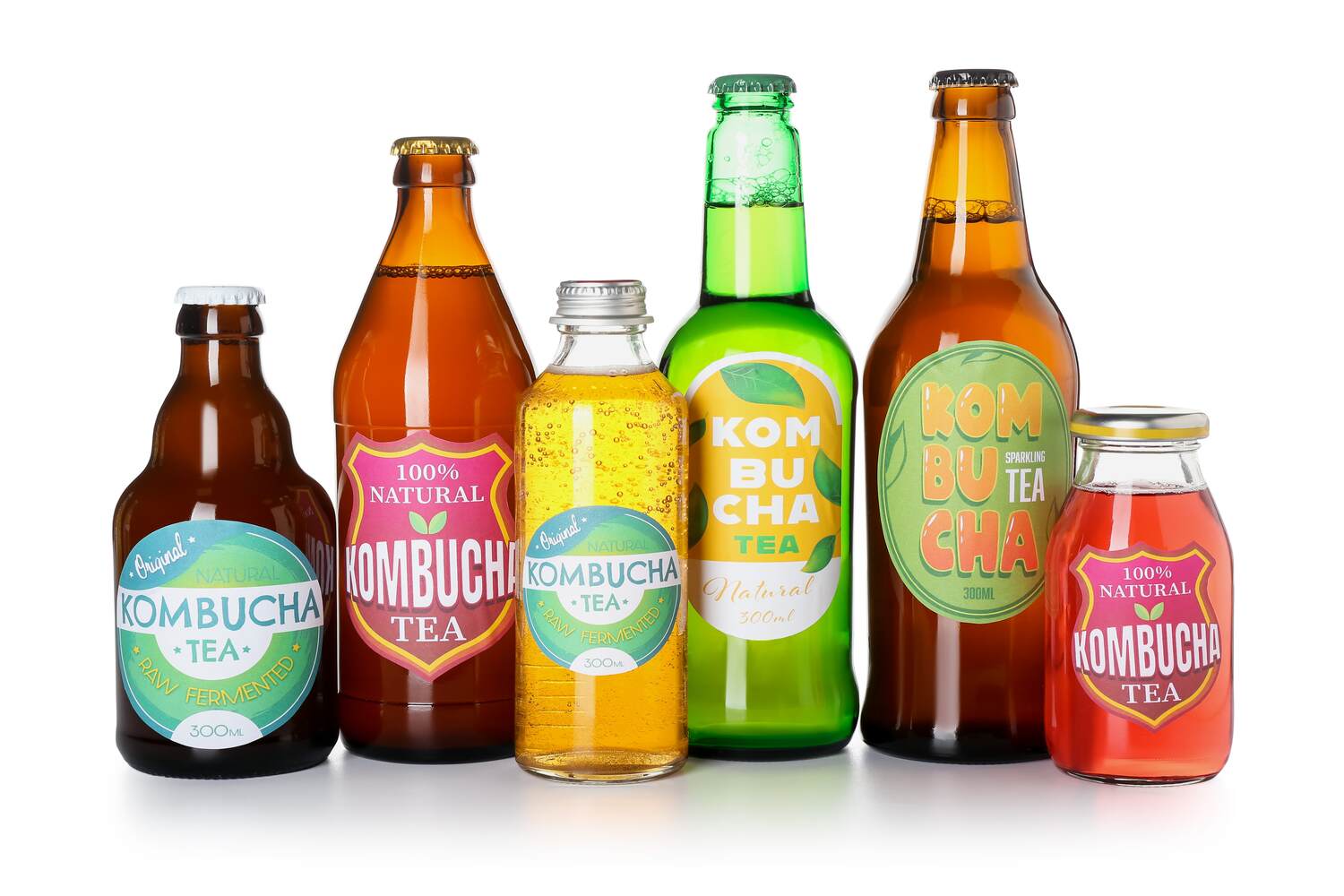
While it is clear that kombucha is safe for kids, one should take certain precautions like-
- Opt for commercially produced kombucha varieties with lower alcohol content, ideally below 0.5% ABV, to mitigate any potential risk of intoxication or adverse effects.
- Introduce kombucha to kids gradually, starting with small quantities to gauge tolerance and minimize the risk of gastrointestinal upset.
- Be watchful of lead toxicity if kombucha is brewed at home or is unpasteurized.
Kombucha is safe for kids who are four years of age and above. This is because it provides various potential health benefits, primarily due to its probiotic content, antioxidant properties, and nutrient profile. However, it’s essential to read nutrition labels, introduce it gradually, and look out for sensitive reactions, if any. We also need to remember that moderation is the key.
FAQ’s
1. Can Kids be Allergic to Kombucha?
Sensitivity to ingredients like mold, fungi, and yeast used in kombucha production may provoke allergic reactions ranging from mild itching to severe anaphylaxis. To minimize the risk of allergic reactions, parents should carefully read ingredient labels on commercial kombucha products and choose varieties that contain ingredients known to be safe for their kids.
2. How Much Alcohol is in Kombucha?
The alcohol content in kombucha can vary depending on the fermentation process, brewing time, and storage conditions. Generally, commercially available kombucha beverages contain trace amounts of alcohol, typically less than 0.5% alcohol by volume (ABV). It’s also worth mentioning that home-brewed kombucha may have higher alcohol content compared to commercially produced varieties.
3. How Much Kombucha is Too Much?
The Centers for Disease Control (CDC) recommends consuming kombucha in moderation and consider 120 to 180 ml per day safe.
References
- Kombucha: Review – [https://www.sciencedirect.com/science/article/abs/pii/S1878450X20301499]
- Kombucha: A review of substrates, regulations, composition, and biological properties – [https://ift.onlinelibrary.wiley.com/doi/10.1111/1750-3841.16029]
- A review on health benefits of kombucha nutritional compounds and metabolites – [https://www.tandfonline.com/doi/full/10.1080/19476337.2017.1410499]

